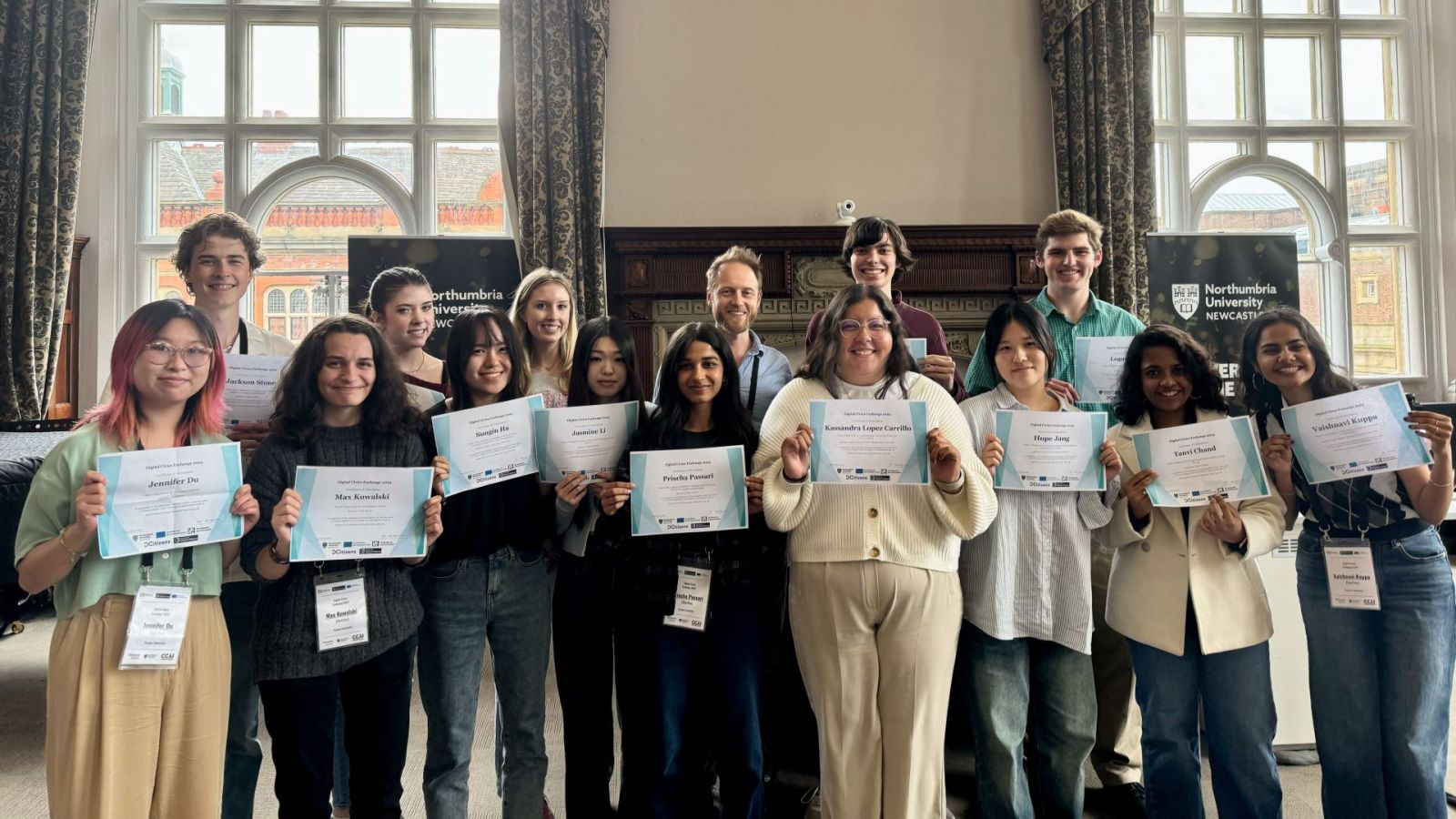
A study abroad group composed of students in Purdue Polytechnic’s user experience design (UX) major recently joined international partners at Northumbria University for the Digital Civics Exchange.
The American partners involved in organizing the Digital Civics Exchange include Paul Parsons, a Polytechnic associate professor in the Computer Graphics Technology Department, and Indiana University’s Colin Gray and Austin Toombs. Gray and Toombs, former Purdue Polytechnic colleagues with Parsons, began the program in 2018.
“This year, in addition to working with our usual stakeholders from Newcastle University and Northumbria University, we partnered with students from other universities—Indiana University, the University of Siegen and the University of Lisbon,” Parsons said.
Northumbria University defines the mission of the program as such: “Digital Civics research seeks to explore the ways in which citizens and communities can be empowered in decision making processes and service provision—on both local and national scales—through the design of digital technologies that create more relational interactions with governments, political organizations, healthcare providers and civic authorities.”
The event also allowed entrepreneurs and businesses from Newcastle, in England’s northeast, to attend and receive user experience assistance and feedback from the student groups. Creators could therefore receive practical help with their product designs, and students were given hands-on experience with a real business attempting to bring a product to market.
Pete DiPrimio for IU’s Luddy School describes a selection of student projects:
- Working to support data capture methods for visually impaired people in fully autonomous vehicles, including imagining ways to augment a cane to capture and monitor stress-related data
- Creating new opportunities for local residents to help restore lost woodland in urban areas, including pre- and post-forest care, and educational opportunities for local schools
- Combating misinformation by using voice-activated technology to allow users to flag misinformation that happens in everyday conversations
- Envisioning the future of public charging for power wheelchairs
The total organizational team for 2024’s Digital Civics Exchange includes 14 faculty members across all of the above named universities, plus the Italian Institute for Technology in Genoa. The Exchange is also funded by two supranational government groups—UK Research and Innovation, in addition to direct funding through the European Union.
“Over the past five years, we have been able to engage over 100 students in impactful digital civics work as part of this exchange and look forward to the next DCX event in 2025,” said Parsons, Gray and Toombs.
Additional information
- PhD student earns high placement in popular cognitive engineering research competition (Purdue Polytechnic newsroom)
- Computer graphics professor named most distinguished faculty researcher by student organization (Purdue Polytechnic newsroom)
